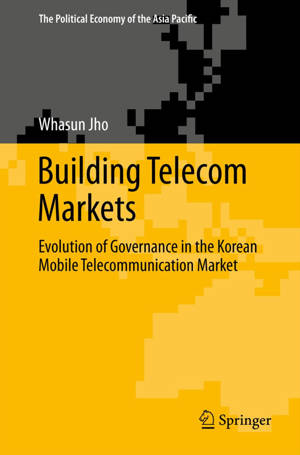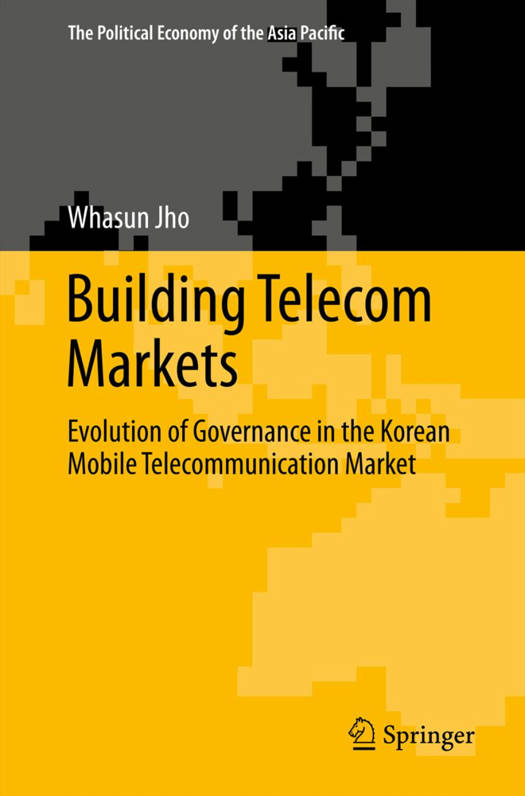
- Afhalen na 1 uur in een winkel met voorraad
- Gratis thuislevering in België vanaf € 30
- Ruim aanbod met 7 miljoen producten
- Afhalen na 1 uur in een winkel met voorraad
- Gratis thuislevering in België vanaf € 30
- Ruim aanbod met 7 miljoen producten
Zoeken
Building Telecom Markets
Evolution of Governance in the Korean Mobile Telecommunication Market
Whasun Jho
€ 139,95
+ 279 punten
Uitvoering
Omschrijving
The mobile telecommunication industry has been one of the fastest growing industries in the global economy since the late 1990s. As the first country to offer commercial Code Division Multiple Access (CDMA) cellular service in the world, Korea was able to jump right into the digital mobile markets, enhancing its status as a leading manufacturer of mobile equipment. While the growth of the telecom industry occurred with the emergence of worldwide market-oriented regulatory reform and liberalization in telecommunications, the state-market relationship in Korea evolved from state monopoly toward "centralized governance" and later toward "flexible governance," which is substantially different from "liberal governance" of the US. This book examines the uniqueness of Korean regulatory reforms of the mobile telecommunication sector, and argues that the market-oriented regulatory reform and liberalization should be explained by focusing on the interactions among the state, the private sector, and international political economic environment. It will appeal to scholars and policy-makers alike concerned with market regulation, Asian development and political economy.
Specificaties
Betrokkenen
- Auteur(s):
- Uitgeverij:
Inhoud
- Aantal bladzijden:
- 222
- Taal:
- Engels
- Reeks:
Eigenschappen
- Productcode (EAN):
- 9781461478874
- Verschijningsdatum:
- 27/08/2013
- Uitvoering:
- Hardcover
- Formaat:
- Genaaid
- Afmetingen:
- 156 mm x 234 mm
- Gewicht:
- 517 g

Alleen bij Standaard Boekhandel
+ 279 punten op je klantenkaart van Standaard Boekhandel
Beoordelingen
We publiceren alleen reviews die voldoen aan de voorwaarden voor reviews. Bekijk onze voorwaarden voor reviews.











